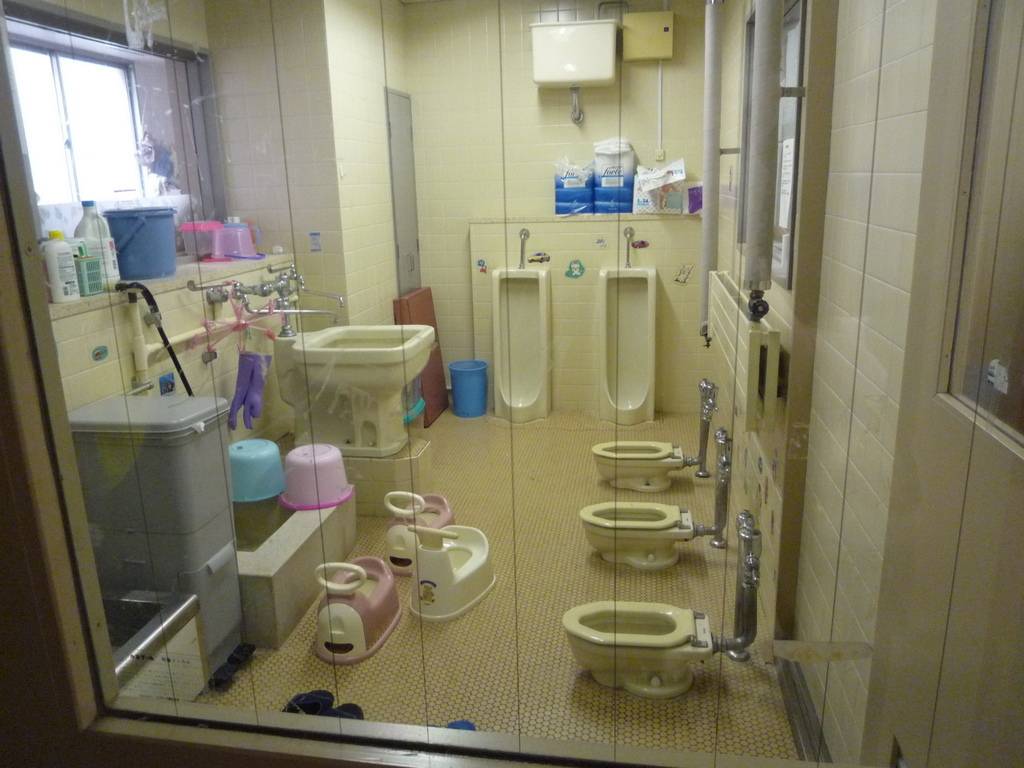
If you think finding a good daycare center in the US for your kids is tough, try Japan. The country that 127.3 million men and women call home is stuck in a uniquely awful childcare situation—and thanks to the rise of unregulated, so-called “baby hotels,” it’s one that has led to the deaths of several infants.
In Japan, high demand means that securing a place at a public kindergarten or nursery that is subsidized by the government is extremely tough—especially in Japan’s cities. According to the Japan Times, at the end of April 2015, 23,167 childrencouldn’t get a place in any childcare facility. (Some parents that Broadly spoke to had been turned down by more than ten centers, even when they applied more than a year ahead.)
The result? Unauthorized nurseries that offer round-the-clock care for children from newborns to school age.
In October, 34-year-old Yusuke Tsunoda was arrested on suspicion of injuring four-month-old Rinto Idenawa, who later died from brain damage in December 2015 while staying at Chibikko Boy, a 24-hour baby hotel in Hiratsuka, Kanagawa Prefecture.
Rinto, who had been dropped off at the baby hotel at around midnight, was among 23 infants who had been left in the sole care of Tsunoda for the night. The center had been reported for violations six times since 2008, but continued to operate despite repeated warnings from the prefectural government.
Privately-operated baby hotels often charge more than government-approved childcare centers, and can be staffed by unqualified personnel. They are, however, still perfectly legal. According to statistics released in February by the Minister of Health, Labour and Welfare, there are 1,749 baby hotels in Japan that are responsible for 32,523 children.
In 2000, the Japanese government began to privatize and deregulate childcare, making it legal for businesses, individuals, and private preschools to open their own nurseries. In 2013, Prime Minister Shinzo Abe’s administration proposed emergency plans to increase the number of childcare facilities by 2019. But, as Rinto’s case illustrates, increasing the number of centers does not mean increasing the quality of care.
The toddler’s death is, sadly, not an unusual case. According to figures put together by the Cabinet Office, nine children died in fatal accidents in baby hotels in 2015 alone. In March this year, 14-month-old Kento died at the Kids Square Nihonbashi Muromachi center in Tokyo, less than a month after his parents began to use the facility. In the same month, a six-month-old girl also died in the middle of the night at the Kamata Children’s House in Ota City, a ward in Tokyo.
Both of the girl’s parents were in full-time, permanent employment, and had not been able to find a place in public childcare by the time their parental leave was over. They found Kamata Children’s House online and paid the 24-hour nursery more than 60,000 yen ($570) a month. Two members of staff were working at the center at the time of their baby’s death; neither possessed any childcare qualifications.
Though fatalities at childcare centers are not exclusive to Japan, in the UK, where 24-hour facilities are rare, anyone working with children is legally required to undergo a DBS check (Disclosure and Barring Service). Nursery staff are required by law to gain a childcare qualification, and all childcare facilities are regularly inspected by the government agency Ofsted. Japan, in contrast, lacks similar regulatory systems, meaning that baby hotels offering low standards of care are able to slip through the net.
“Many shocking things happen in baby hotels. At the same time, if these places didn’t exist, even more horrible things might happen.”
One woman, who spoke to Broadly on condition of anonymity, worked at a baby hotel in the prefecture of Nagasaki for five months. She described her workplace as “filthy.”
“I’m still sad when I remember that time working there,” she said. “I don’t know if that baby hotel still exists or not, but I still think often about my experiences there, and about that baby hotel and the children I looked after. It left strong impressions and deep emotions with me.”
She said that the center, located in Sasebo (the second largest city in Nagasaki) also failed to provide proper nutrition for the children. Food was not freshly prepared for the infants, and they ate the same “boil in the bag” convenience meals every day. “Many shocking things happen in baby hotels. At the same time, if these places didn’t exist, even more horrible things might happen, I think.”
90 percent of the mothers leaving their children with the baby hotel were sex workers or employed as hostesses and bar girls, she claimed. “One mom, I remember, had never worked in a sex industry job before but had been left with no other choice. She was really nervous and sad because she obviously didn’t want to leave her child in a baby hotel.”